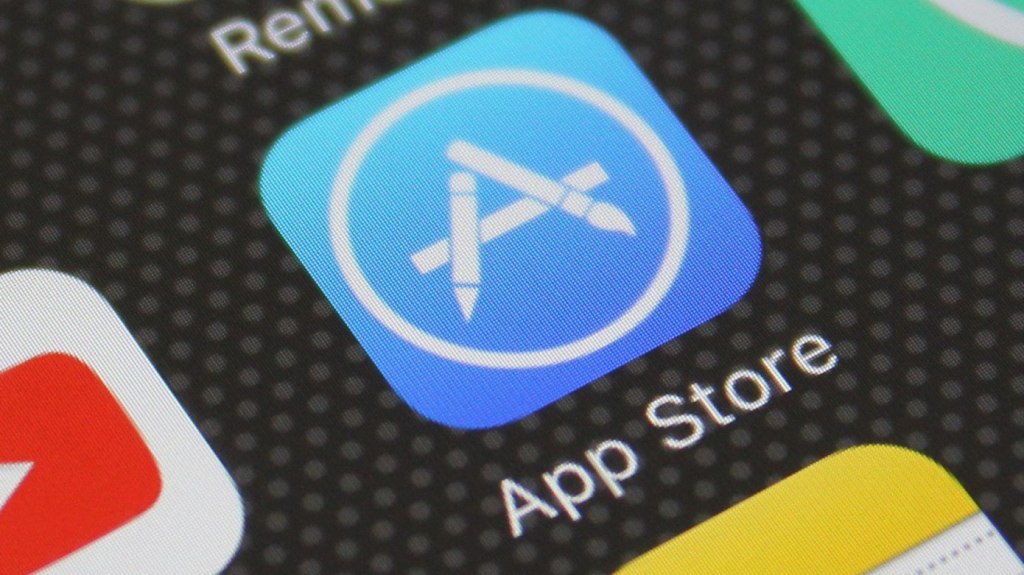The U.S. Supreme Court ruled 5-4 against Apple on Monday on a case involving whether or not a group of iPhone users will be allowed to bring an antitrust lawsuit against the company regarding its App Store practices. The iPhone owners allege that Apple’s 30% commission on App Store sales is passed along to users, representing an unlawful and unfair use of Apple’s monopoly power.
Apple had moved to have the case dismissed, arguing that consumers were buying their apps from the developers — not from Apple. And it was the developers who were setting the prices. The court disagreed, saying that Apple contracts with the third-party developers to sell the 2 million apps that are live today on its App Store, keeping its 30% commission on every sale along the way.
In addition, the court ruled in favor of the iPhone owners’ lawsuit proceeding for several other reasons. It said that any person injured by an antitrust violation may sue to recover damages, and that ruling in favor of Apple would have prevented consumers from suing monopolistic retailers who took commissions on sales — not just those who marked up the price it paid a supplier or manufacturer for a good or service. This would have created a hole where retailers could restructure their practices to avoid antitrust claims, the court said.
“Apple’s line-drawing does not make a lot of sense, other than as a way to gerrymander Apple out of this and similar lawsuits,” the opinion, authored by Justice Kavanaugh, read.
“If a retailer has engaged in unlawful monopolistic conduct that has caused consumers to pay higher-than-competitive prices, it does not matter how the retailer structured its relationship with an upstream manufacturer or supplier—whether, for example, the retailer employed a markup or kept a commission,” stated the court.
The iPhone owners also said that Apple’s monopoly on the aftermarket for apps means they’re forced to pay higher prices than if the environment was more competitive. In a different environment, they could have chosen between paying Apple’s higher price and other less costly alternatives.
Instead, iPhone owners say that developers are forced to mark up their prices in order to cover Apple’s “demanded profit.”
We’ve seen this in action already, of course. One recent example is Spotify, whose music app was $9.99 per month if you subscribed on the web, but was $12.99 per month if you subscribed on iOS — a move it made to recoup the commission, but also to make a point about Apple’s monopoly power. And following a complaint in March from Spotify, the EU is preparing to investigate Apple for anti-competitive behavior.
Other large app developers have also ditched selling through Apple. Amazon, for example, redirects many purchases to the browser — like those for books, music, movies and TV shows, for example. Netflix just dropped in-app subscriptions on iOS in December because of this so-called “Apple tax.” And Fornite maker Epic Games, which also bypassed the Google Play Store at launch, upcharges for in-app purchases on iOS.
The Supreme Court’s dissenting opinion stated that the precedent set Illinois Brick Co. v. Illinois,
431 U.S. 720 in 1977 held that an antitrust plaintiff can’t sue a defendant for overcharging someone else who then may or may not pass on the overcharge to others. It said the developers are the injured party in the matter, and plaintiffs are only injured if the developers choose to pass on the overcharge.
Apple’s stock is down by more than 5% as of the time of writing.
Update, 5 PM ET: Apple has now offered a comment, which wasn’t available when the news first came out this morning. The full comment is below:
Today’s decision means plaintiffs can proceed with their case in District court. We’re confident we will prevail when the facts are presented and that the App Store is not a monopoly by any metric.
We’re proud to have created the safest, most secure and trusted platform for customers and a great business opportunity for all developers around the world. Developers set the price they want to charge for their app and Apple has no role in that. The vast majority of apps on the App Store are free and Apple gets nothing from them. The only instance where Apple shares in revenue is if the developer chooses to sell digital services through the App Store.
Developers have a number of platforms to choose from to deliver their software — from other apps stores, to Smart TVs to gaming consoles — and we work hard every day to make our store the best, safest and most competitive in the world.































Comment